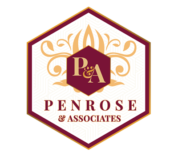
Qualifying Medical Expenses
Generally speaking, a medical expense will qualify for a tax deduction if the expense is for the diagnosis, cure, mitigation, treatment, or prevention of disease, and the costs for treatments affecting any part or function of the body. The following general types of expenses qualify:
• Costs for medical services from physicians, surgeons, dentists and other medical professionals;
• Costs for medications prescribed by a medical professional
• Costs for medical devices, equipment and supplies prescribed by a medical professional (such as eyeglasses)
• Costs for health and dental insurance
• Costs for long-term care and long-term care insurance
• Transportation and lodging costs for traveling to a health care facility, including mileage for driving for medical care at a rate of 16.5 cents per mile (for 2010).
Over-the-counter treatments, nutritional supplements, vitamins, and first aid supplies do not qualify as tax-deductible expenses, unless those items are prescribed by a medical professional. Controlled substances (such as cocaine and marijuana) are not tax-deductible either, even if prescribed.
